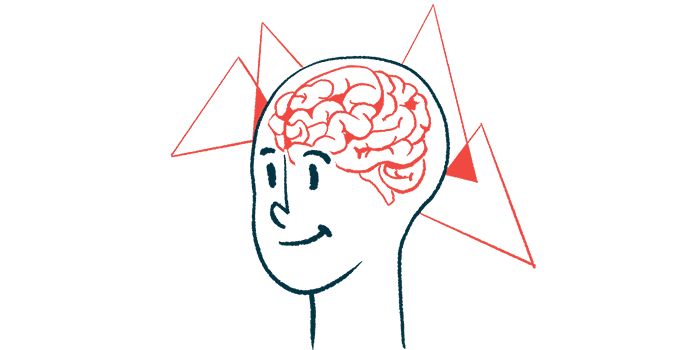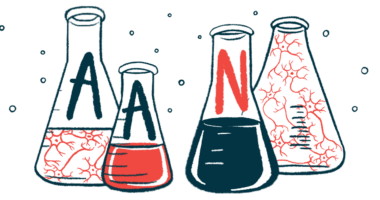High-dose Cranberry Juice Shows Potential to Protect Brain Cells

Concentrated cranberry juice eased signs associated with Parkinson’s disease in a chemically induced rat model, but its long-term use at high dose may affect the survival of brain cells, a study suggests.
Further research is needed to determine an optimal dose of a cranberry juice concentrate with neuroprotective properties, its scientists advised.
The study, “Neuroprotective Effects of Cranberry Juice Treatment in a Rat Model of Parkinson’s Disease,” was published in the journal Nutrients.
Parkinson’s disease is marked by the progressive death of nerve cells in the brain that release the signaling molecule, or neurotransmitter, dopamine. A lack of dopamine results in characteristic Parkinson’s motor and non-motor symptoms.
Evidence indicates that these cells are compromised by the clumping of a protein called alpha-synuclein, affecting energy-producing mitochondria and causing oxidative stress, or an excess of toxic oxygen reactive species over antioxidant molecules produced to detoxify them.
Cranberry fruits contain high amounts of polyphenols, plant-derived chemicals with potent antioxidant properties. Studies suggest a link between regular intake of antioxidant-rich foods and a slower cognitive decline.
However, the neuroprotective potential of cranberry is limited to only a few studies.
Recently, scientists based at the Poznań University of Medical Sciences in Poland showed that cranberry juice treatment controlled oxidative stress in several organs, especially in the brains of rats exposed to rotenone, a chemical that triggers Parkinson’s-like symptoms in animals.
These researchers now evaluated how cranberry juice affected an underlying mechanism related to Parkinson’s in the same rat model.
“This study aimed to extend the research by examining cranberry juice’s capability to modulate the apoptosis [cell death] mechanism and thereby provide neuroprotection in a rat model of parkinsonism,” the team wrote.
Rats were given either water (a control group), a six-fold concentrated cranberry juice, or rotenone as an under-the-skin injection, or both cranberry and rotenone. The experiment lasted 45 days, consisting of 10 days of cranberry juice or water, then 35 days of combined cranberry plus rotenone (for the group given this combination) or continued cranberry concentrate or water.
An examination of brain tissue revealed a 51% increase in alpha-synuclein in rats exposed to rotenone. Cranberry given rotenone-challenged animals lowered alpha-synuclein buildup by 18% and restored levels to those in control rats.
Rotenone exposure caused an increase in the production of proteins related to cell death (apoptosis). In comparison, animals given concentrated cranberry juice showed a decrease in these proteins, suggesting neuroprotection, the team noted.
Microscopic examination revealed a 57% loss of cells in rats given rotenone in the midbrain, the area of the brain affected by Parkinson’s disease, while the use of cranberry juice improved cell survival by 41%. “Surprisingly,” the scientists noted that treatment with cranberry juice alone showed a 15% decrease in midbrain cell survival compared with controls.
“Importantly, we also found that long-term administration of [cranberry juice] alone in a relatively high dose may exert a deleterious effect on cell survival in the midbrain,” the researchers wrote.
Rats underwent a posture instability test at the end of treatment. Each animal was held upright, with one of its forelegs touching a sandpaper-lined table, and then each rat’s center of gravity was pushed forward until taking a step. Researchers measured the distance taken by the rat to regain its center of gravity.
Animals exposed to rotenone showed a statistically significant 13% increase in postural instability, with a greater distance needed to regain their center of gravity relative to control rats.
Postural instability was reduced by 11% in rotenone-exposed rats treated with cranberry, similar to controls. Rats given cranberry juice alone also showed an increased distance, but the difference was not statistically significant.
“[Cranberry juice] slightly improved ROT-induced behavioral deficit by protecting from apoptosis and [alpha]-synuclein accumulation in the midbrain of rotenone-treated rats, demonstrating its neuroprotective efficacy for [Parkinson’s disease],” the scientists concluded. “These findings suggest that cranberry preparations may have a potential application in clinical practice or dietary guidelines for the prevention and/or adjunctive [add-on] treatments” of Parkinson’s disease.
“However, taking into account the potentially unfavorable effect of long-term administration of juice in relatively high doses, a dose-dependence study should be performed to optimize the treatment,” the scientists added.






